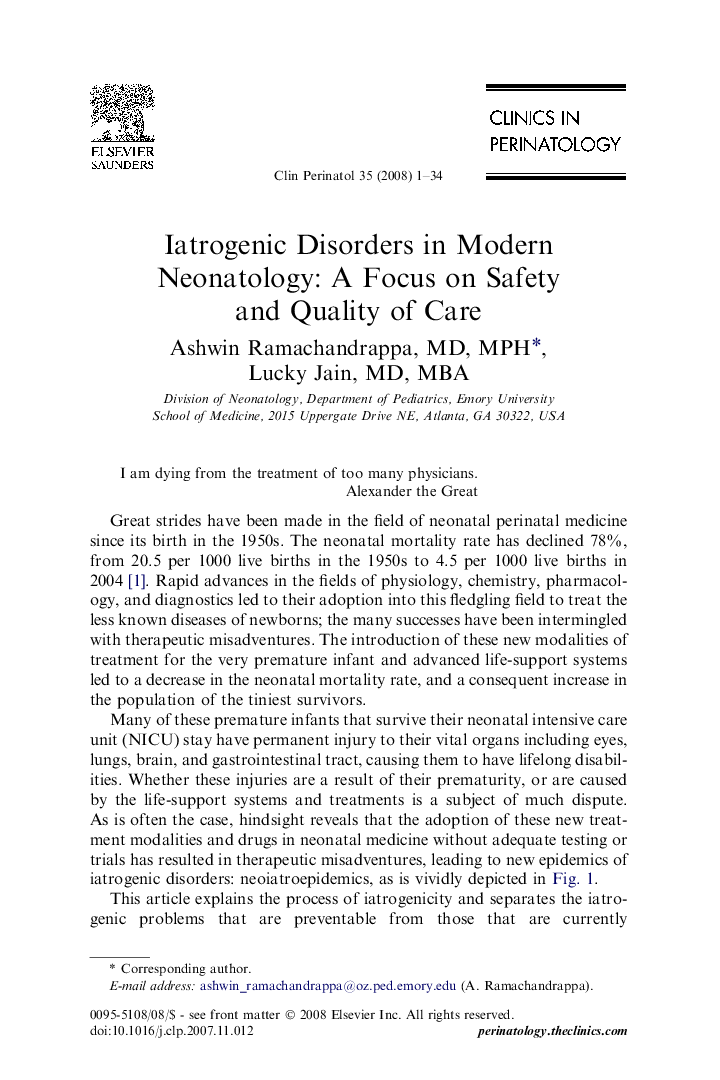| Article ID | Journal | Published Year | Pages | File Type |
|---|---|---|---|---|
| 4151923 | Clinics in Perinatology | 2008 | 34 Pages |
Abstract
The introduction of new modalities of treatment for the very premature infant and advanced life-support systems have led to a decrease in the neonatal mortality rate, and a consequent increase in the population of the tiniest survivors. Many premature infants that survive their neonatal intensive care unit stay have permanent injury to their vital organs including eyes, lungs, brain, and gastrointestinal tract, causing them to have lifelong disabilities. Whether these injuries are a result of their prematurity, or are caused by the life-support systems and treatments is a subject of much dispute. This article explains the process of iatrogenicity and separates the iatrogenic problems that are preventable from those that are currently unpreventable.
Related Topics
Health Sciences
Medicine and Dentistry
Perinatology, Pediatrics and Child Health
Authors
Ashwin MD, MPH, Lucky MD, MBA,
